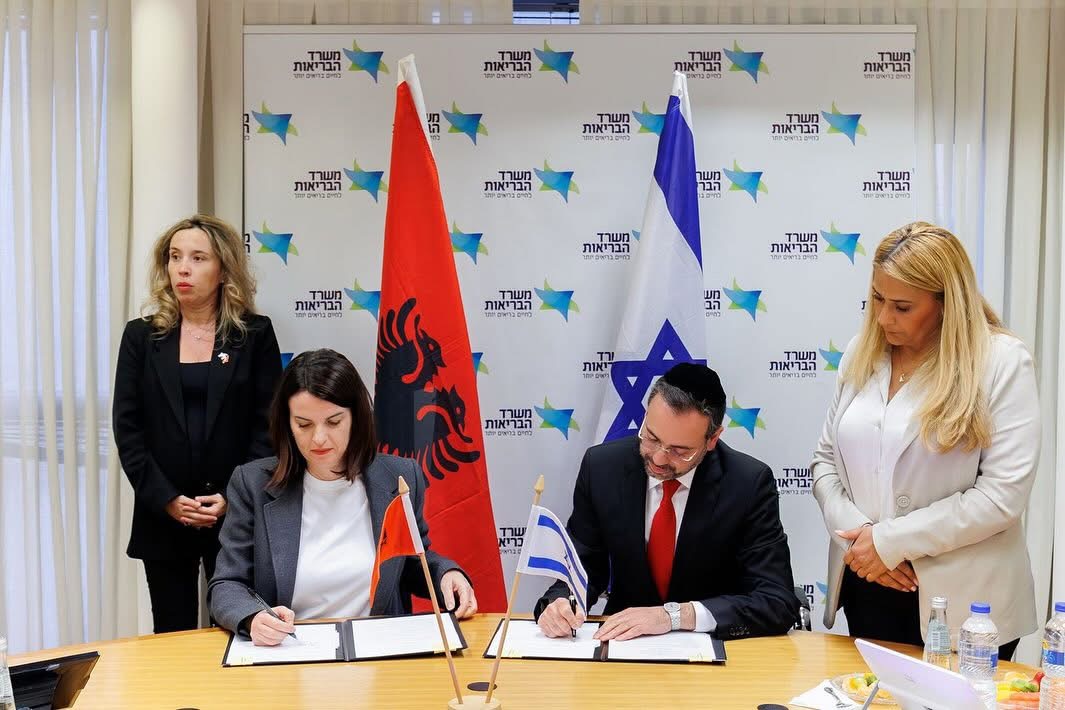Albania and Israel sign healthcare agreement to boost training and hospital standards

Albania and Israel signed a Joint Declaration today to strengthen cooperation in the health sector, opening the door to deeper partnerships in medical training, hospital services, and oncology care. The deal includes a strategic partnership between Albania’s University Hospital Center “Mother Teresa” (QSUNT) and Israel’s Sheba Medical Center, the country’s largest hospital.
Why this is important: The agreement is expected to raise healthcare standards in Albania and provide specialization opportunities for Albanian doctors in top Israeli hospitals. It also formalizes long-term cooperation with Sheba Medical Center to improve oncology care and hospital management.
Context: Health Minister Albana Koçiu said the focus of the meeting was not only the broader challenges facing both countries’ health systems but also the direct opportunities this cooperation creates—especially in terms of training Albanian doctors abroad and improving cancer treatment capacities at home.
“This isn’t just about exchanging experiences,” Koçiu said. “It’s about building stronger systems, modern solutions, and setting new standards for patient care.”
The agreement was signed at the Ministry of Health and Social Protection in the presence of Koçiu and Sheba Medical Center CEO Yitshak Kreiss. The cooperation is expected to involve everything from advanced medical technology to pharmaceutical exchange and hospital governance.
The Sheba connection: QSUNT is already twinned with Sheba Medical Center. The agreement deepens that bond, creating new paths for joint training, shared protocols, and clinical innovation. The collaboration will target high-priority areas including oncology, digital health, and emergency medicine.
According to Kreiss, Sheba’s goal is to serve as a long-term partner in helping Albania modernize its hospital infrastructure and expand its medical talent pool.
Oncology at the forefront: One of the central pillars of the agreement is oncology care. Koçiu emphasized that Albania wants to close the gap between local and international treatment standards, and Sheba’s model offers a roadmap to do that.
From improved diagnostic tools to modern medication protocols, the partnership aims to offer Albanian patients broader access to effective and timely cancer treatment.
What else: The deal includes plans for Israeli experts to help design training curricula and assist in technology upgrades at Albanian hospitals. It will also pave the way for regular staff exchanges between the two countries, giving Albanian healthcare workers exposure to some of the most advanced medical practices in the region.
Koçiu closed her remarks by underlining the government’s commitment to long-term partnerships that directly benefit patients. “This is about the health of our citizens—not just today, but for the future,” she said.


